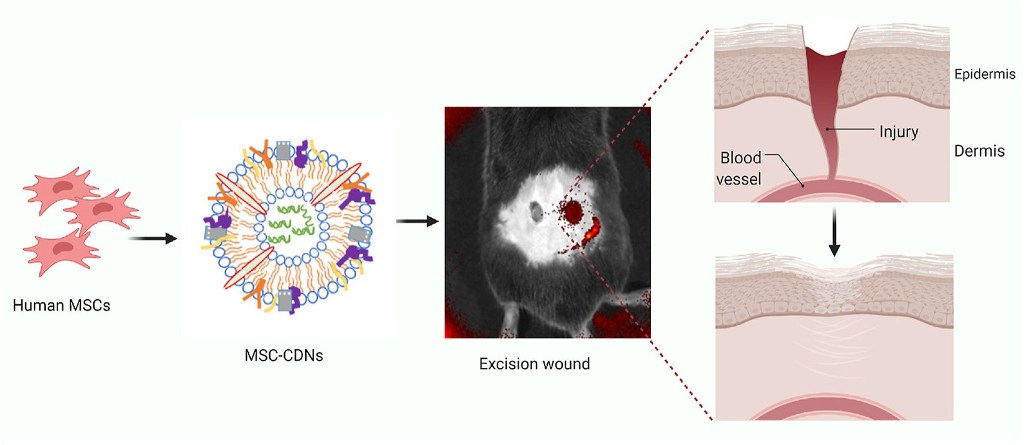Scientists from the National University of Singapore (NUS) discovered a way to produce nano-sized vesicles from cells using a cell shearing approach called Cell-derived Nanovesicles (CDN). The findings are found to be significantly useful for biomedical applications.
In research led by Prof. Giorgia Pastorin of NUS, her team, and in collaboration with Prof. Bertrand Czarny of Nanyang Polytechnic University (NTU) and Singapore Eye Research Institute (SERI), they found that the CDNs mimic the extracellular vesicles (EVs) that are naturally occurring in the body. CDNs mimic not only the physical characteristics, but the biological contents (e.g. proteins, lipids, and nucleic acids) of EVs and can be produced at much higher yields.
What are EVs? What do they do?
Extracellular vesicles are naturally occurring cell-secreted lipid-bound membranes found in biological fluids. They were found to be useful in several biomedical applications such as:
- Biomarkers for diagnostic purposes
- Therapeutic agents
- Drug delivery systems
EVs have shown regenerative and/or tissue reparative effects as well. Although, EVs are limited to an extent as they still require a tedious isolation process, and have low production yields.
How do CDNs work?
 Source: Acta Pharmaceutica Sinica B, Science Direct
Source: Acta Pharmaceutica Sinica B, Science Direct
Prof. Pastorin’s study utilizes CDNs obtained from mesenchymal stem cells (MSC) to investigate their impact on accelerating wound healing. The study then found that MSC-CDNs significantly contribute to:
- Creating a signalling pathway in Human Dermal Fibroblast (HDF) cells to enhance cell proliferation, growth factors and other cellular regeneration properties that assist better in the overall healing process of wounds.
- Enhance the formation of new blood vessels in cell cultures.
- Has a healing rate almost twice as fast compared to MSC-EVs (as investigated via murine models).
The future of CDNs
Prof. Pastorin’s team is working towards investigating and exploring further the efficacy of these nanovesicles as therapeutic agents for cardiovascular and drug delivery systems. CDNs are under continuous study and are hopeful to yield more findings that could improve biomedicine in the future.
For more information, read the study here.
To know more about breakthroughs in life sciences and R&D, connect yourself to thousands of experts, managers, directors, and companies that share your pursuit in biomedical research. Clinical Org brings you just exactly that. Discover the larger clinical community today.